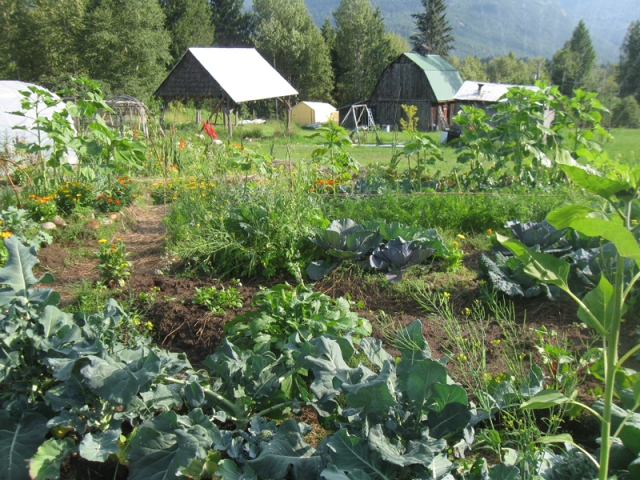Changes to ALC Act amendment not enough, says local agriculture advocate
Public outcry over the province’s proposed changes to the Agriculture Land Commission Act has the provincial government considering stepping back a bit from its original plan.
However, the changes do not do enough according to one Nelson resident on the forefront of the fight to protect farmland in the province.
Nelson resident and Co-Chair of the BC Food Systems Network, Abra Brynne met the second reading of the altered Bill 24 with “outrage.
“It’s so disappointing to see Bill 24 going to second reading yesterday,” Brynne said.
“The minister claimed to read letters from British Columbians but still chose to take no action on their concerns. Nothing came of the public engagement he promised.”
According to The Province, the provincial government has received thousands of letters from British Columbians asking for changes to the proposed amendment of the ALC Act that would be put into place by Bill 24, which is currently making its way through the Legislature, with its second reading on Monday.
The government’s proposed amendments would protect farmland on Vancouver Island, the Lower Mainland and Okanagan (Zone 1), but would give land-owners in the rest of the province (Zone 2) the opportunity to open up their land to industrial development for things like food processing facilities, as well as oil and gas projects.
After getting thousands of letters expressing complaints and concerns about the legislation, including concerns about food security, Minister of Agriculture, Norm Letnick has announced changes to Bill 24 aimed at adding more oversight to decisions around usage of the Agricultural Land Reserve (ALR) in the province.
According to a press release from the Ministry of Agriculture, the amendments to the bill will refer all applications to the ALC’s executive committee (which consists of six vice chairs, one from each region of the province if the chair determines a decision could have substantial impact on the ALR.
“Criteria will be clearly defined in regulation and could include, for example, applications with inter-regional significance, major land or large infrastructure considerations, new types of applications that have not been considered before or when the local panel determines it is best heard by the provincial committee,” Letnick stated in the press release.
“Bill 24 is also being amended to clearly outline, in priority order, the criteria the commission must consider in all land use decisions in Zone 2. This priority list will begin with whether the ALC considers the proposal to meet with the purposes of the commission, namely the preservation of agricultural land, encouraging farming and enabling farm use on agricultural land . . .”
Letnick added that he was thankful to British Columbians for “conveying their thoughts and vision” to him, and he feels the changes will improve the existing act, help preserve agricultural land and continue to support the agricultural sector.
ALR advocates concerned government still in control of decisions
Brynne, along with many advocates for agriculture in the province, however, aren’t feeling so warm and fuzzy.
Brynne said the fact that the bill is moving forward with the division of the ALR into two zones and six regional panels making the decisions, without any real public consultation, indicates the province hasn’t addressed what people in the province are concerned about.
She added that government-appointed officials would chair the regional panels making decisions about ALR land use under the new rules and their decisions would be subject to many outside influences.
“The government wouldn’t be making decisions on the Agricultural Land Commission, but they would be the ones appointing each of the panel chairs, Brynne said. “The susceptibility of those regional panels to influence and pressure . . . in their home region means we will undoubtedly lose more agricultural land.”
She added that opening farmland to non-agricultural uses has the potential to drive up land prices and make life more difficult for farmers or those who want to get into farming.
“Across Canada last year, agricultural and values rose something like 10.6 percent,” she noted. “Here in B.C. it only rose at 0.6 per cent. So counter to the dominant trend across Canada, the ALR is helping depress the cost of agricultural land to make it more affordable for those who are actively farming and people who want to get into farming – because it’s easier to afford.
“It’s going to have an impact on who can afford to be on the land, which will have an impact on how much food is being produced.”
She said farming in the province is not only important for food security, but it’s also an important industry and economic driver that the provincial government is treating with little concern.
“They haven’t consulted us. They haven’t listened to farmers or the citizens of British Columbia and what they need,” Brynne said. “They don’t take this seriously.”
She adds local food advocates held an information session outside the Kootenay Co-op on Baker Street Saturday, with opportunities for locals to let the provincial government know how they feel about the changes to the ALR.
























Comments